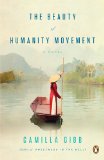Summary | Excerpt | Reading Guide | Reviews | Beyond the Book | Readalikes | Genres & Themes | Author Bio

A Novel
by Camilla Gibb
Tu met Phuong a couple of years ago when they were both teaching at the high school in Dong Da district. Tu was twenty years old and had just made the depressing discovery that loving math was a very different thing from loving teaching it. He was dreading the thought of the next forty-five years until retirement, but when he thought of the drudgery his parents had endured in their early working lives, he was overcome with guilt
Bình and Anh had been employed at the Russian KAO factory for years, dutiful proletariat manufacturing Ping-Pong balls for a pittance. Tu's father had worked with celluloid, his mother had tested for bounce, and Tu had had a cardboard box full of misshapen white balls to play with as a child. But in the 1980s, the bones of the Soviet Union began to rattle. Soviet aid ran out and the factories began to close, leaving Vietnam friendless and hungry and in trouble. And so began Doi moi - Vietnam's very own perestroika - the economic reforms that allowed a free market to develop and have since changed all of their lives.
Tu's father now has endless carpentry work. He employs two assistants, four skilled woodworkers and an apprentice, but still, with so much construction going on he must say no to jobs on occasion. Despite his enthusiasm for private enterprise, Bình is still more craftsman than businessman.
Tu's mother, meanwhile, had knocked on the doors of every one of the new butcher shops that opened in the 1990s until she found one proprietor who was obliged to listen because he came from the same village as her mother. The story is now legendary in their family. "Tell me nine ways to prepare pork for Tet and I'll consider hiring you," the butcher said. And so Tu's mother recalled the pork dishes they used to eat during the holidays at her grandmother's house. She described the sensation of her teeth collapsing through fried rice paper into the soft ground pork middle of a spring roll, the crisp saltiness of pig skin fried with onions, the silk of the finest pork and cinnamon pâté coating her tongue, the soft chew of pork sausages, the buttery collapse of pig's trotters stewed with bamboo shoots, the ticklish texture of pig intestines resting on vermicelli and the fill of sticky rice, pork and green beans boiled in banana leaves. Just when she was about to falter, she remembered how her father used to reminisce about the dishes his mother made for Tet during his boyhood in Hue: pork bologna, fermented pork hash, pig's brain pie...
The butcher raised his finger. "You're hired. Stop there before I fire you."
Tu did not have to do time in a factory: he grew up in a world where he was free to choose a career for himself. What right did he have to complain about his teaching job? But then he'd met Phuong, a part-time music teacher a few years older than he who taught classical Dàn bau two days a week. Phuong, moping in the teachers' lounge, had called theirs a thankless profession. This had unleashed a sympathetic torrent from Tu, marking the beginning of an illustrious friendship.
Phuong had the spirit and imagination of an artist and entrepreneur, enough to inflate the dreams for two. By the end of that school year, once Phuong had lobbied Tu's father for consent, they had both submitted their resignations and registered for a diploma course at Hanoi Tourism College.
You are the Doi moi generation, the instructors at the college told them, the children of the renovation, the future of Vietnam - a future that depends on opening even more doors to international trade and relations. Tu feels the elation of being poised at the vanguard of the future as a proud, fully fledged, nationally accredited tour guide shaking the hands of the world.
Tu's English might be better than Phuong's, but Tu knows that in many ways it was Phuong who taught him what foreigners really want. Tu prides himself on being an excellent memorizer, and initially relied on the vast and readily accessible number of facts stored in his brain. He has memorized, in particular, The Big Book of Inventions, so if a tourist comes from, say, Norway, he can impress him by asking, "Do you know the invention for which Norway is most famous? The aerosol spray can."
Excerpted from The Beauty of Humanity Movement by Camilla Gibb. Copyright © 2011 by Camilla Gibb. Excerpted by permission of Penguin Press. All rights reserved. No part of this excerpt may be reproduced or reprinted without permission in writing from the publisher.
I find that a great part of the information I have was acquired by looking something up and finding something else ...
Click Here to find out who said this, as well as discovering other famous literary quotes!
Your guide toexceptional books
BookBrowse seeks out and recommends the best in contemporary fiction and nonfiction—books that not only engage and entertain but also deepen our understanding of ourselves and the world around us.